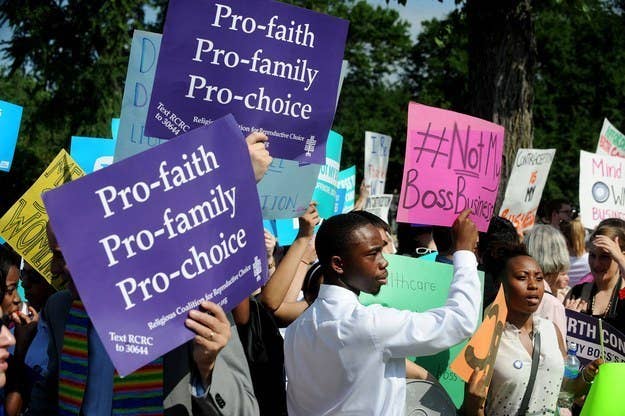
WASHINGTON — As union and pro-choice activists lamented Monday's Supreme Court decisions, progressive leaders and strategists mulled how to turn a very bad day for them into a good November.
The country's highest court announced two decisions Monday. The first was on Harris v. Quinn, in which Justice Samuel Alito wrote for the majority that Illinois home health care workers who don't wish to pay union dues could not be compelled to do so by the state.
For months unions feared that the Harris v. Quinn decision might determine that all public-sector non-union employees have the right not to pay administrative fees for unions bargaining on their behalf, also known as "right to work." Likewise, the court's second decision on Monday in the Hobby Lobby case, exempted certain for-profit businesses from the Affordable Care Act's contraception mandate, was a blow for progressives.
But with midterms around the corner and 2016 looming ever closer, progressives are figuring out how to turn the negatives into a positive.
"There is a silver lining here," said American Federation of Teachers President Randi Weingarten. "To the fact that the court was so obvious about whose side it is on. And it is not on the side of regular working folk."
Weingarten pointed to the Harris and Hobby Lobby cases as well as recent decisions on campaign finance and the Voting Rights Act as ways to galvanize left-leaning voters and make them show up at the polls in this election and the next.
"In the guise of individual liberty, the court has really taken a whack at regular working folks and a whack at the ladder of opportunity for everyday Americans, and particularly women," she said.
One progressive source with strong ties to labor described the Harris v. Quinn decision as "a big deal," even though the ruling ended up being relatively narrow in scope.
"These decisions have the potential to be a huge motivator for union, choice activists — the people who have to be committed to make voter mobilization programs work — in '14 and more likely '16," the source emailed.
Whether progressives can excite voters with the relatively wonky argument about potentially conceding another seat on the Supreme Court to a conservative if a Republican president wins in 2016 remains a challenge.
Progressive strategist Mike Lux said union PACs will likely try to fundraise off these decisions, but more generally noted that if the Supreme Court idea is weaved into a broader context, say, by focusing on corporations' attempt to control the electoral process, voters might actually respond, especially in a presidential year.
"I think Citizens United sort of started something, and now all of these decisions are building on each other," Lux said.
